- Home
- Douglas Niles
Viperhand mt-2 Page 2
Viperhand mt-2 Read online
Page 2
"We will see my uncle, Naltecona," explained the warrior.
"I expect that he will grant his protection, though there is no way to be certain of that. Some of his advisors will surely urge your harm. After Ulatos, bad blood will flow hot among the warriors."
The defeat of the nation of Payit by the forces of the Golden Legion had included a bloody rampage by the invading forces. The legion had attacked the Payit at their capital city of Ulatos. It had been the first, but probably not the last, violent conflict between the legion and the warriors from a nation of Maztica.
"But Halloran didn't aid his comrades at Ulatos!" objected Erix. "He saved me from them!"
"The great Nattecona will hear this, and we must have faith in his wisdom," answered Poshtli.
"I'll take that chance," said Hal. "For one thing, it seems we have few other choices — save constant flight. It runs against my nature to flee my enemies rather than to face them."
"Well said," Poshtli agreed. "Though we do well to choose a battle on our own terms."
"Agreed." Halloran nodded. "When it comes, it can't be any worse than some of the other fixes I've gotten myself into over the years. I've had battles against pirates and desert nomads, been surrounded by ogres…"
"Ogres?" asked Poshtli. "What are these 'ogres'?"
Halloran looked at him in surprise. "Well, they're fierce and huge — kind of like humans, but bigger and dumber, and very savage. They're monsters, of a type similar to ores and trolls. Dont you have creatures like that in Maztica?"
Poshtli shook his head. "These monsters, manlike but savage, do not exist here. We have the hakuna, the fire lizard, and other dangers. But for a lack of ogres and ores, it seems we should be grateful."
Erixitl listened to the men talk of monsters and warfare, feeling the weariness creeping over her even before the sky had completely darkened. She wished that these minutes of peace might last into hours, or days, though she feared this was impossible. Nevertheless, the prospects of future dangers could not overcome her present contentment.
In minutes, she slept. But sleep offered no peace on this night.
Erixitl became a bird, soaring above the expanse of Maztica. Or perhaps she was the wind itself, the warm embodiment of life-giving air, sweeping across the True World with a cleansing caress. She swirled above snowy peaks, whisked among green forests and heavy jungles. She knew a sense of freedom and power that had never been hers before.
Across Maztica she soared, over the lands of the Payit and the Kultakans, and finally, at the center of the continent, the realm of mighty Nexal. The twin volcanoes of Zatal and Popol barred her way, but the wind broke up and over the massif unchecked. She swept into the streets of the city of Nexal, and though she had never seen the great city, she recognized it — indeed, she knew it well. Beneath the cool wash of a full moon, hanging low against the eastern horizon, she darted around towering pyramids, along myriad canals, until finally she soared into the palace of Naltecona himself.
But here something was wrong.
Growing chill, she glided up the walls, onto the roof of the palace. There she saw the Revered Counselor, resplendent in a feathered headdress and his cape of many colors. Men of the Golden Legion surrounded Naltecona. In alarm, Erixitl coursed closer, noting the sharp shadows cast by the moon. The figures stood in a circle, a tableau for her inspection.
She saw a metal-helmed figure with steely hard black eyes, and she knew this was Cordell. With vague surprise, she noticed that Halloran, too, stood among them, though his former comrades did not desire his presence. She understood these things, even as she witnessed the frozen scene.
And around the palace, across the floor of a broad, enclosed plaza, glowered thousands of warriors. Upon the chests of many, Erix saw, was the pulsating crimson head of a living snake. The forked tongues of these vipers flickered forth, sensing blood in the air.
Then the stillness on the palace roof broke as, with slow but deliberate movements, the players came to life.
Under the glaring moon, slowly rising in the east, Naltecona fell dead. Erix swept forward, too late for aught but a final circle around the bleeding figure of the great ruler.
The men of the legion staggered back in consternation at the killing. The world turned dark, and chaos fell from the skies. The looming volcano rumbled.
And then black shadows spread across the face of Maztica. The land became a great, gaping sore, and poison poured forth. It spread in a growing circle, to the horizons of her vision, and it kept growing.
Erix knew that she was seeing the end of the world.
"It's called steel" Halloran explained, showing Poshtli the gleaming edge of his sword, Helmstooth. "It comes from a mixture of metals, combined under great heat. Mostly iron."
He enjoyed talking to the warrior, and during their journey had come to realize that he and Poshtli had much in common. At times, he almost forgot that this man was the product of a savage, bloodthirsty society.
"Iron? Steel?" Poshtli repeated the foreign words, lisping them off his tongue. He had seen Hal's weapons in action, had held and examined them before, but now he took advantage of Hal's growing command of the language to ask about them. "These must be metals of great power."
"Perhaps. They are strong materials, and hold a keen edge. You've seen them splinter wooden weapons and stone blades."
"These are metals that do not dwell in the True World," explained the warrior, a trifle wistfully.
"I think they do," Hal countered. "But you lack the tools — the 'powers' — to pull them from the earth."
"Metals. Silver and gold, these are the metals known to us. They are beautiful, even desirable. They have many uses — for art, for ornamentation. Lords wear lip plugs and earplugs of these metals, and the dust of gold is used for barter. It is easier to transport than a similar value of cocoa beans. Yet these metals do not cause a hunger in us such as they seem to among your own people. Tell me, Halloran, do you devour such metals?"
Hal laughed grimly. "No. We covet them, some of us, for they have come to represent wealth. And wealth represents power in our lands."
"We are of different worlds, different peoples," said Poshtli, with a slow shake of his head. He looked up, staring frankly at Hal. "Yet I am glad that our paths have crossed."
Hal nodded in agreement, surprised at the warmth of friendship he felt for this warrior. "Without you, Erix and I would surely have perished by now," he said sincerely. "I can only thank whatever gods watch over us that we have, the three of us, been brought together."
They both looked at Erixitl, who rolled restlessly in her sleep. Tossing her head, as if in sudden dismay, she threw a hand upward. Her long brown fingers rested across her forehead, and Halloran was struck, as he had been struck so many times before, by her serene beauty. The ravages of their march, soothed now by rest and water, seemed to melt away from her.
Soon the men, too, settled back quietly. Poshtli quickly slumbered, but Hal couldnt keep his eyes closed.
His mind was tormented by the confusing pictures of this land. He looked at Erix and Poshtli, recognizing their nobility of character, the depths of their friendship and loyahy. Each could certainly have fared better alone, rather than to remain with him, a giant, white-skinned stranger from another world. They showed him the strength, the fineness of Maztica.
Yet he also remembered the brutality of a cleric in Payit, a worshiper of Zaltec who had torn the heart from a helpless woman held prostrate across his vile altar while Halloran was restrained, helpless, scant feet away. He saw images of that grim, warlike god, and thought with a shudder of this culture that tolerated such a bestial religion. He wondered in amazement about such people, that they could accept as a god's due the gruesome sacrifice of so many of their own.
Now he journeyed to the city at the very heart of this world. Why? He asked himself the question that tore at him, but he couldnt be satisfied with the answer. True, he saw no other alternative. But he didn't belong here! Ever
ything around him brought home the alien nature of this land. The barbarism of Maztican religion shocked and appalled him.
But where could he turn? Sitting up and shaking his head in frustration, he thought of his former companions, the Golden Legion. Doubtless they all wanted him dead by now — certainly that was the desire of the dour Bishou Domincus and the quiet, menacing elven mage, Darien.
He thought of his escape from the legion's brig, where he had been sent by the Bishou in the man's grieving rage over his daughter's death. Hal escaped, seeking the chance to redeem himself on the field. There he had found Alvarro, ready to trample Erix into dust, consumed by bloodlust.
The choice then, as now, had been clear. He saved her and they fled, though the act must surely now have branded him a traitor.
So he remained with these true companions, accompanying them to Nexal, to this great city about which they both talked so reverently. He had, in truth, nowhere else to go. But there was more, much more, to it than that.
He remembered the Bishou's daughter, Marline, slain by the sacrificial knife. At one time, he had thought he loved her. Now he knew that her beauty, her smile, her pleasant attentions had been food for his vanity, nothing more. She had been a shallow, selfish girl and he a foolish knave. Though that thought relieved none of the pain of her death, it gave Halloran disturbing notions about his own life.
Once again his eyes fell upon Erixitl. She still tossed restlessly, and he longed to take her into his arms, to hold her. Yet he feared her reaction, and so he only watched, feeling more helpless than ever.
But he knew now that he loved her.
From the chronicles of Colon:
In silent worship of Qotal, the Plumed Father, I remain a faithful observer of doom.
Like the venom of a snakebite on the leg or on the hand or arm, the various seeds of catastrophe gather in the outlying realms of Maztica.
Already the Payit have been conquered, subjugated by the invading men and their brutal warrior god called Helm. The venom gathers in Payit, and of course it will flow through the blood of Maztica.
And the Ancient Ones work their wrack, leading the blind priests of Zaltec closer and closer to their own bleak destiny. The brand of the Viperhand becomes their symbol, and like the spreading inflammation of poison, it infiltrates and festers in the body of the True World.
Everywhere fractious differences divide the land. Kultakans strive against Nexal, Nexal strives to conquer all Maztica. This divisiveness, too, is toxic.
So grows the power of destruction, venom in the muscle and bloodstream of Maztica. And as is the way of such poison, it flows through the body of the land, until soon it will gather in the Heart of the True World.
THE CITY AT THE HEART OF THE TRUE WORLD
A small deer slipped between two encloaking ferns, silently pressing through the deep jungles of Far Payit. The creature hesitated a moment, then darted forward, sensing danger but unable to pinpoint the threat.
Suddenly a huge jaguar landed silently on the ground before it, fixing the deer with a sharp, penetrating gaze. The smaller creature froze in terror, staring into those unblinking yellow eyes. The only movement was the trembling of the deer's thin legs, the quivering of its heaving flanks.
For long moments, the jaguar held the deer spellbound. Then, with a slow, deliberate blink, the great cat dropped its lids over those bright eyes. Instantly the deer leaped away, springing through the brush in a desperate flight. So fast, so terrified was its escape that it failed to notice that the cat offered no pursuit.
"Well done, Gultec." The speaker, an old man with long white hair and brown, wrinkled skin, emerged from the brush and spoke to the jaguar.
Or to what had been the jaguar. Now, in the cat's place, stood a tall, muscular man. Both men were clad in spotted loincloths and otherwise were naked and unarmed.
"Thank you, Zochimaloc," said the younger man, bowing deeply to his companion. When Gultec looked up, his handsome face wrinkled slightly in confusion. "But tell me, Master, why do you bid me hunt thus, with no killing and no food?"
Zochimaloc sighed, sitting lightly on a moss-covered log. As he waited for a reply, Gultec pondered his own ease with this strange, wizened man. Weeks earlier, the concept of a "master" would have been one that the Jaguar Knight could never have accepted. Indeed, death would have been preferable to his own servitude and devotion. But now the old man who had become his teacher seemed the most important thing in the world to Gultec, and every day seemed to bring more evidence of how very little the warrior actually understood.
"Soon you will be ready to learn more," said the old man finally. "But not yet."
Gultec accepted the statement with a nod, not questioning his teacher's wisdom.
"Now let us return to Tulom-Itzi," said Zochimaloc. In a flash, the old man's form changed as he became a brilliant parrot. With a quick thrust of his wings, he took to the air, vanishing among the tree trunks and leaving Gultec to follow on foot.
The Jaguar Warrior pushed his way through the jungle patiently, though he couldn't help reflecting on the changes in his life that had brought him here. He remembered his despair when the metal-skinned strangers had destroyed his army and conquered the Payit — his nation. Then he recalled the freedom of his flight into the jungle as a wild, hunting jaguar.
His flight had ended with the humiliation of capture by men who served Zochimaloc, almost immediately his captivity gave way to the discipline of his teacher's long hours of training.
Never before had Gultec learned so much or asked so many questions. He had dwelled in the jungle lands all his life, yet Zochimaloc showed him how little he really knew about those jungles. Gultec studied animals and plants, he observed the patterns of the weather and the stars. Indeed, the pride of Tulom-Itzi was a building erected for no other purpose than the study of the heavens!
All of his studies, all the strength of his renewed discipline, his teacher often hinted, would soon focus in a great purpose — the reason Gultec had been brought to Tulom-Itzi. That purpose remained a mystery, but another trait the warrior had developed was patience.
And soon enough, Gultec knew, this purpose would be made clear.
They came around the shoulder of the great mountain and then stopped suddenly, all three of them frozen in awe. The blue waters of the lakes beneath them, far below on the valley floor, glittered like turquoise in the sunlight. On a flat island in the center of the largest lake lay the valley's gem: Nexal, the magnificent city at the Heart of the True World.
"See the four lakes?" said Poshtli, pride thrumming in his voice. "Named for the gods. Here before us, on the south, is broad Lake Tezca, for it lies along the tracks to the sun god's desert."
He pointed to the right. "To the east, the largest — Lake Zaltec, named for the war god. Largest, because war is man's grandest purpose, and no men are better at war than the Nexal!" The warrior suddenly cast a sideways glance at Halloran. He had recited, by rote, the lessons he had learned as a youth. Now he thought of Hal's countrymen in the Golden Legion and no longer felt so certain.
Quickly he pointed into the distance. "Lake Azul, deep and cold, named for the god of rain. And here, to the west, is Lake Qotal"
The latter was a brackish brown in color, obviously shallow, since tufts of grass and reeds extended far into the lake from its marshy shore. "The small stagnant one," Poshtli said, a hint of sadness in his voice. "Named for the absent god Qotal, who turned his back on his people and left them to the hunger of the younger gods."
Halloran tried to absorb the vista before him. His exhaustion vanished in the first moments of that stupendous view. The days of marching northward, finally leaving the desert behind, the fatigue of the long climb up this mountain, all disappeared in a sensation of reverent awe.
"Nothing you've said has prepared me for this," he noted haltingly, not looking at Poshtli as he spoke.
"It is the place I have dreamed about," Erix added quietly.
Hal looked at the
three blue lakes, a rich deep blue, remembering that each was named for a bloodthirsty god of sacrifice. The fourth, the ugly brown one, they dedicated to the "Plumed God," the one who had disappeared. Still, he had learned that many Mazticans, including Erixitl, believed the tales that Qotal would one day return.
They lapsed into silence again, Halloran still staggered by the wonders below them: the city of white buildings and colorful plazas, covering many miles in breadth, the tall, terraced pyramids, gathered around and dwarfed by the mountainous massif the Nexalans called the Great Pyramid. He looked upon Nexal's sprawling palaces. He wondered at Nexal's great size, at the green fringes surrounding the buildings, extending into the lakes themselves. These floating gardens spread like a blanket of moss on the surface of the water, encircling the city in a belt of abundance.
The scope and scale of the city astounded him. He had seen Waterdeep, had lived in Calimshan and Amn, had traveled the length of the Sword Coast in the Realms. Yet none of those civilized lands could boast a city that compared to Nexal in size or grandeur. He estimated that a thousand or more canoes plied the waters of the lakes, while countless more maneuvered through the city's canals.
Erixitl of Palul saw the city for its beauty. She saw the profusion of flowers and their brilliant gardens, the glimmering blankets of feathers floating gracefully in the air above the markets. Fountains and pools reflected sunlight from a thousand large arboretums.
"My uncle is lord of it all," said Poshtli, his voice proud but surprisingly subdued. He had led them from the desert, into the high mountain pass, and now he seemed oddly overcome himself, though he had spent most of his life in the great metropolis below.
"It surpasses anything I have ever seen — the colors, the setting, the sheer size of the place! With no wall for defense, no bastions…" Hal's voice trailed away. For a moment, he even forgot about the savage rites that were the centerpiece of religion in this amazing place below them. The colors seemed to wink at them in the undying sunlight, beckoning them to descend, to enter.

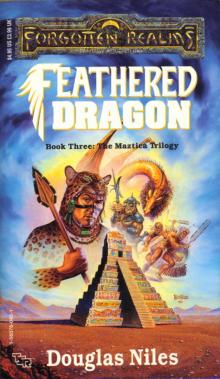 Feathered Dragon mt-3
Feathered Dragon mt-3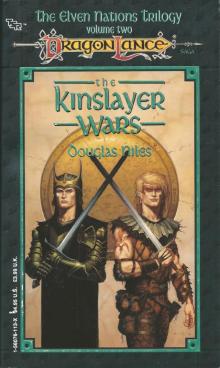 The Kinslayer Wars
The Kinslayer Wars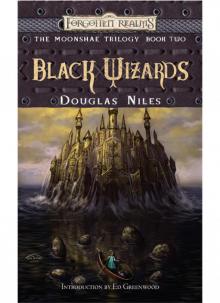 Black Wizards
Black Wizards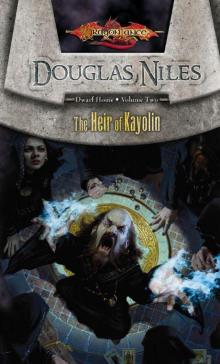 The Heir of Kayolin dh-2
The Heir of Kayolin dh-2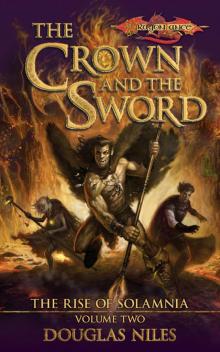 The Crown and the Sword tros-2
The Crown and the Sword tros-2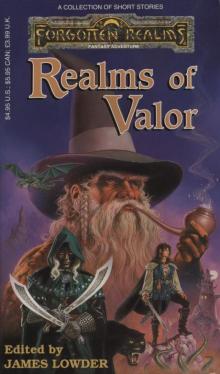 Realms of Valor a-1
Realms of Valor a-1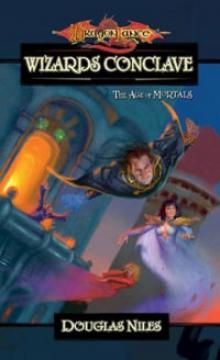 Wizards Conclave aom-5
Wizards Conclave aom-5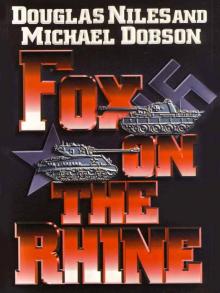 Fox On The Rhine
Fox On The Rhine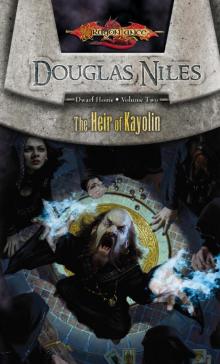 The Heir of Kayolin
The Heir of Kayolin Fox at the Front (Fox on the Rhine)
Fox at the Front (Fox on the Rhine)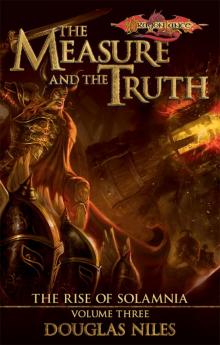 Measure and the Truth tros-3
Measure and the Truth tros-3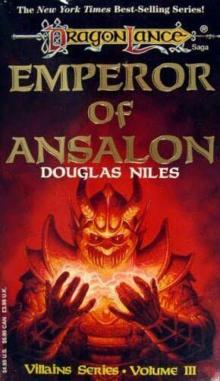 Emperor of Ansalon (d-3)
Emperor of Ansalon (d-3)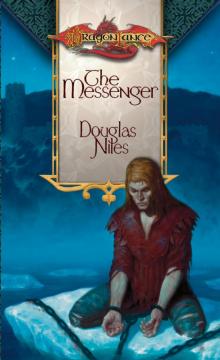 The Messenger it-1
The Messenger it-1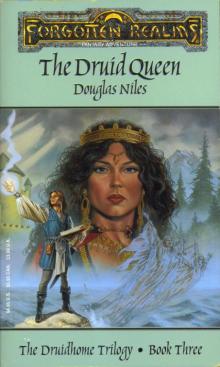 The Druid Queen tdt-3
The Druid Queen tdt-3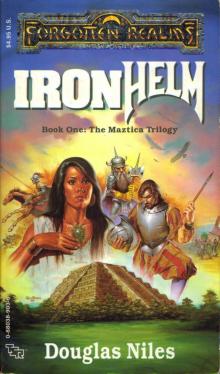 Ironhelm mt-1
Ironhelm mt-1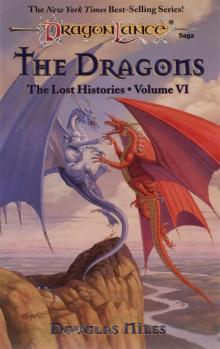 The Dragons lh-6
The Dragons lh-6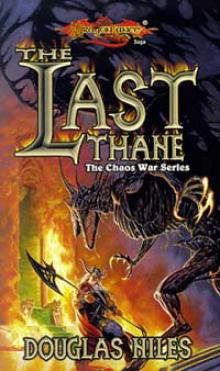 The Last Thane cw-1
The Last Thane cw-1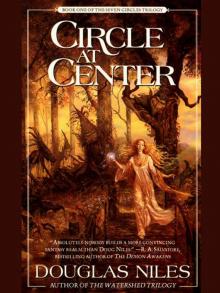 Circle at center sc-1
Circle at center sc-1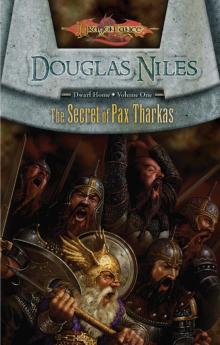 Secret of Pax Tharkas dh-1
Secret of Pax Tharkas dh-1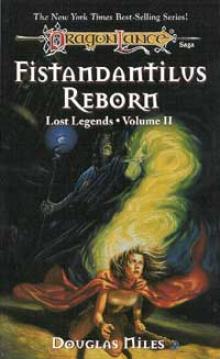 Fistanadantilus Reborn ll-2
Fistanadantilus Reborn ll-2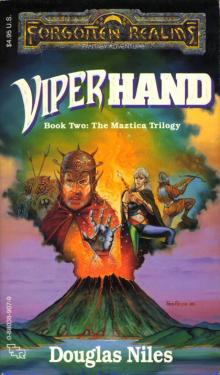 Viperhand mt-2
Viperhand mt-2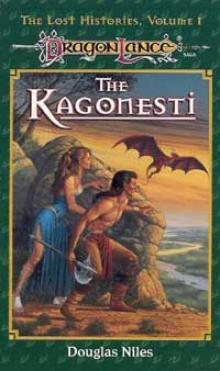 Kagonesti lh-1
Kagonesti lh-1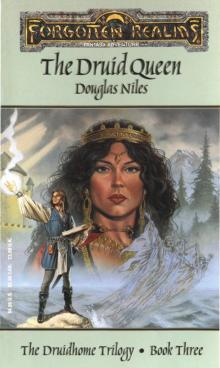 The Druid Queen
The Druid Queen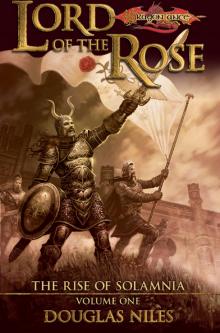 Lord of the Rose tros-1
Lord of the Rose tros-1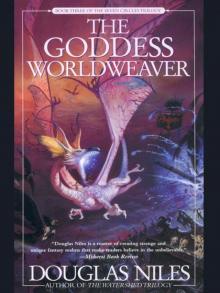 Goddess Worldweaver sc-3
Goddess Worldweaver sc-3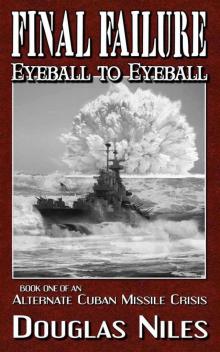 Eyeball to Eyeball (Final Failure)
Eyeball to Eyeball (Final Failure)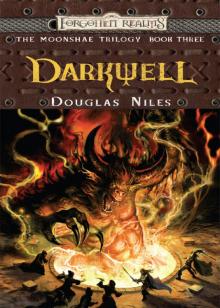 Darkwell
Darkwell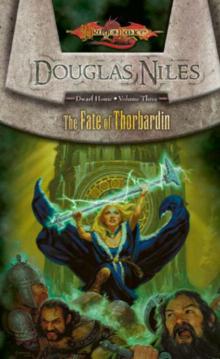 Fate of Thorbardin dh-3
Fate of Thorbardin dh-3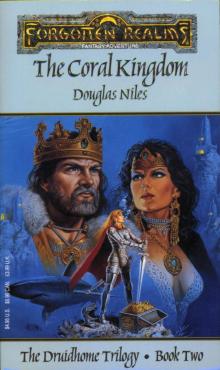 The Coral Kingdom tdt-2
The Coral Kingdom tdt-2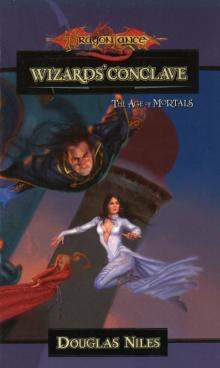 Wizard's Conclave
Wizard's Conclave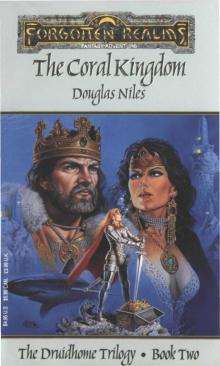 The Coral Kingdom
The Coral Kingdom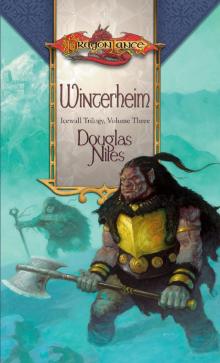 Winterheim it-3
Winterheim it-3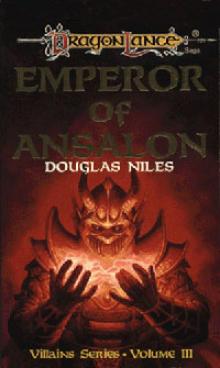 Emperor of Ansalon v-3
Emperor of Ansalon v-3 MacArthur's War: A Novel of the Invasion of Japan
MacArthur's War: A Novel of the Invasion of Japan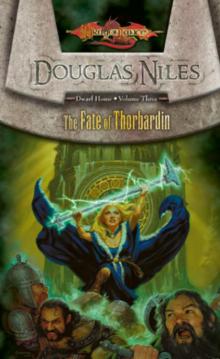 The Fate of Thorbardin
The Fate of Thorbardin The Rod of Seven Parts
The Rod of Seven Parts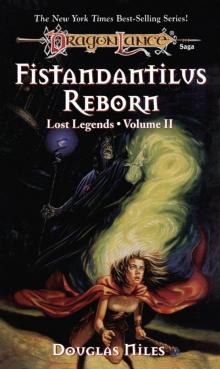 Fistandantilus Reborn
Fistandantilus Reborn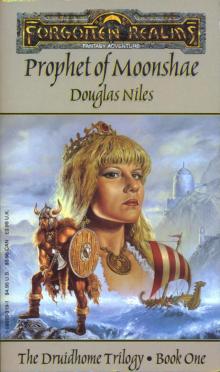 Prophet of Moonshae tdt-1
Prophet of Moonshae tdt-1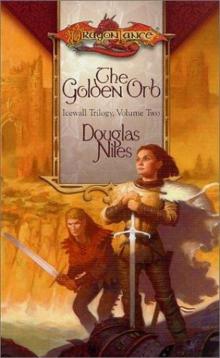 The Golden Orb i-2
The Golden Orb i-2